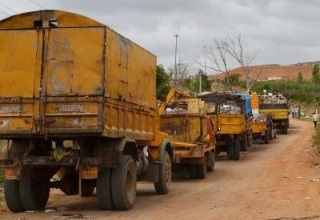Deputy CM visits Okhla and Ghazipur waste-to-energy plants
Updated: May 23, 2015 01:07:46pm

According to a media report, Sisodia and officials of Central Pollution Control Board and municipal corporation checked the mixed waste for incineration and bottom ash generated after the process.
He took a tour of the plant at Okhla to check how the plant is different from the Ghazipur plant. He found out that the bottom ash had unburnt waste indicating that the plant is unable to incinerate it efficiently and that waste is not being segregated before incineration.
While plant staff claimed they used a superior technology, residents later submitted that while the other two plants at Ghazipur and Narela use refuse-derived fuel, Okhla used a technology "of Chinese origin which is not approved in India".
Residents have been complaining that fly ash from the plant envelopes the area and settles in their homes while toxic emissions cause severe health impacts. A CPCB inspection had revealed levels of dioxins and carcinogenic chemical compounds several times the safe standard.
Residents have already filed a petition in National Green Tribunal appealing the plant be either shut down or relocated.
The report quoted a resident of Okhla who is also a technical committee member when the plant was reviewed by the Ministry of Environment, Forest and Climate Change that there was plastic and other waste in the bottom ash. Plant staff claimed it's not harmful as it's not PVC just plastic bags.
He also pointed out that the ministry had granted technology approval for establishment of an integrated municipal solid waste plant with two refuse derived fuel plants, a bio-methanation plant and a power plant. However, the Okhla plant was set up with no facilities for generation of RDF or bio-methanation.
A Ghazipur resident has been quoted that the plant is located on a landfill, at a distance from habitation. In this case, it's just slow kill for residents who are breathing this polluted air on a regular basis.
Residents have submitted in NGT that the plant is using "reciprocating stoker-type boilers of Chinese origin" which are reportedly being phased out even in China due to their pollution potential, it said. (KNN Bureau)












